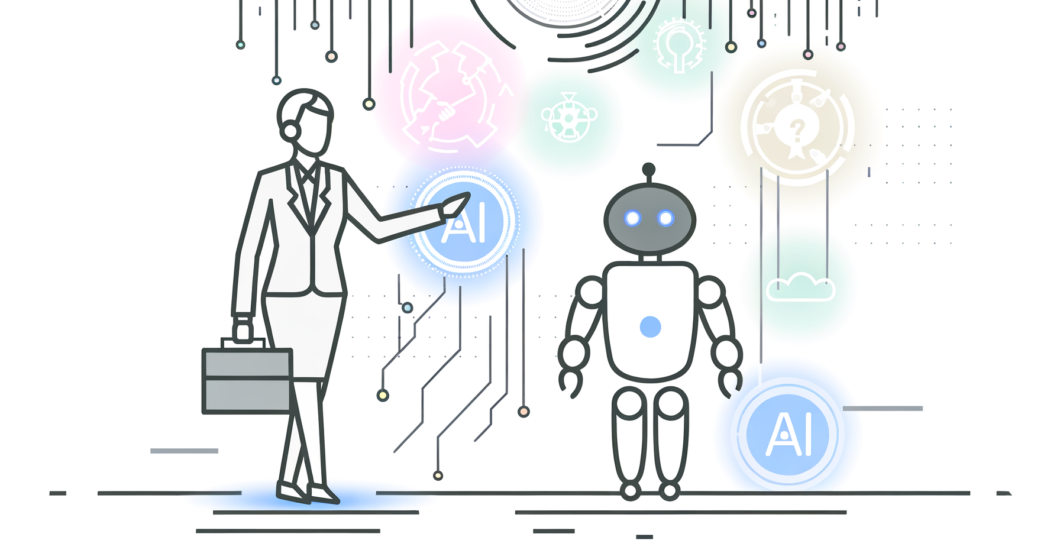Beyond Chatbots: How AI Agents Are Reshaping Business Processes
In today’s fast-paced digital landscape, businesses are continually exploring innovative ways to optimize their operations. Gone are the days when chatbots were the pinnacle of artificial intelligence in customer service. Enter AI agents—sophisticated, self-learning systems capable of executing complex tasks, making data-driven decisions, and reshaping traditional business processes. These AI entities are not just enhancing efficiency; they are redefining the roles of human workers, driving strategic initiatives, and fostering a more personalized customer experience. This article delves into how AI agents are transforming the corporate realm, focusing on their impact on business processes, the integration challenges, and the future landscape of work.
Understanding AI Agents: More Than Just Chatbots
To grasp the profound impact of AI agents, it’s crucial to understand what distinguishes them from traditional chatbots. Most chatbots operate on predefined scripts, responding to customer inquiries based on fixed algorithms. In contrast, AI agents leverage machine learning and natural language processing (NLP) to learn from interactions over time. This enables them to adapt and improve their responses, making them significantly more effective in complex situations.
For instance, while a standard chatbot might struggle to understand nuanced questions, an AI agent can analyze context, identify patterns, and even predict customer needs. This capability allows businesses to handle a wide array of tasks seamlessly—from automated scheduling to personalized product recommendations. It’s no longer just about answering questions; these agents can manage entire workflows, freeing up human employees to focus on more strategic initiatives.
Streamlining Operations: How AI Agents Enhance Efficiency
One of the most transformative impacts of AI agents lies in their ability to streamline operations across various business functions. By automating routine tasks such as data entry, inventory management, and performance tracking, organizations can significantly reduce the time spent on mundane processes.
- Data Management: AI agents can collect, analyze, and interpret data at an unprecedented scale, providing real-time insights to inform decision-making.
- Customer Service: Through continuous learning, AI agents improve query resolution times and enhance overall customer satisfaction.
- Marketing Automation: They optimize marketing campaigns by analyzing customer engagement patterns and adjusting strategies accordingly.
The net result? Not only do companies experience improved operational efficiency, but they also gain the agility to respond quickly to market changes and customer demands, positioning themselves ahead of competitors.
The Role of AI Agents in Workforce Transformation
As AI agents begin to take over repetitive tasks, the workforce experiences a remarkable transformation. Far from replacing human workers, these technologies are seen as collaborative partners that augment human capabilities. Employees can now dedicate their efforts towards creative problem-solving, strategy development, and relationship-building—tasks that require emotional intelligence and nuanced judgement.
This shift also necessitates a re-evaluation of skill sets. Companies must invest in training programs to ensure their employees can effectively interact and collaborate with AI systems. By fostering a culture of continuous learning, businesses not only empower their teams but also increase overall adaptability in a rapidly changing environment. The future of work is one where humans and AI agents together drive innovation and success.
Challenges in Integration: Navigating the AI Landscape
While the advantages of AI agents are clear, businesses face significant challenges in their integration. From legacy systems compatibility to ensuring data privacy, organizations must approach AI adoption thoughtfully. Moreover, the fear of the unknown can lead to resistance from employees who may be apprehensive about job security and the evolving role of technology in their work lives.
To mitigate these concerns, businesses should prioritize transparent communication, outlining the benefits of AI integration and fostering an environment of collaboration. Additionally, utilizing pilot programs can help organizations identify potential pitfalls before a full-scale rollout, allowing for a smoother transition to an AI-enhanced workforce.
Conclusion: Embracing the Future with AI Agents
In summary, AI agents represent a revolutionary step forward from traditional chatbots, streamlining business operations, transforming the workforce, and providing personalized customer experiences. As companies navigate the complexities of integrating these advanced systems, embracing the collaborative potential of AI will be key. The future of business processes lies in creating synergistic relationships between human expertise and artificial intelligence, ultimately paving the way for enhanced innovation and competitive advantage. As we stand at this critical juncture, it is imperative for organizations to adopt a forward-thinking mindset and harness AI agents as essential players in their strategic arsenal.


